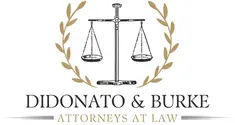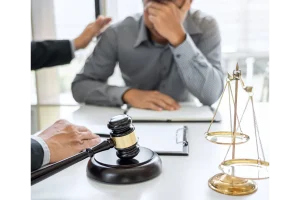White collar crimes refer to non-violent offenses typically committed for financial gain, often involving professionals, businesses, or government officials. These crimes are taken seriously under the law, leading to investigations, criminal charges, and significant penalties if convicted. Understanding the common charges in white collar crimes and potential defense strategies is essential for anyone facing these accusations.
What Are White Collar Crimes?
White collar crimes include a wide range of financial and business-related offenses rooted in deceit or abuse of trust. These crimes aim to secure financial advantages through unethical or illegal means, such as fraud, embezzlement, or insider trading. While they don’t involve violence, the consequences can be severe, impacting reputations, businesses, and personal lives.
Legal penalties for these crimes often include hefty fines, restitution payments, asset forfeiture, or even imprisonment. For individuals accused of such offenses—whether business executives, accountants, or public officials—understanding the charges and defense options is critical.
Common Charges in White Collar Crimes
White collar crimes cover a variety of offenses, but some are more frequently encountered in legal proceedings. Below are some of the most common charges:
1. Fraud
Fraud involves intentionally misrepresenting facts to secure financial or personal gain. It is one of the most widespread white collar crime charges, covering areas like securities fraud, wire fraud, and insurance fraud.
Proving the lack of intent or insufficient evidence can be key to defending against fraud charges. In some cases, demonstrating that the accused acted in good faith can weaken the prosecution’s claims.
2. Embezzlement
Embezzlement occurs when someone entrusted with assets or funds improperly uses them for their own benefit. This often happens in corporate settings, where individuals handle company money or resources.
Defense approaches may include proving lawful access to the funds, arguing that the misuse was accidental, or challenging the validity of the evidence presented.
3. Insider Trading
Insider trading refers to the illegal buying or selling of stocks based on confidential, non-public information. It undermines the fairness of financial markets and is closely monitored by regulatory authorities.
A common defense involves showing that the trades were based on public information or that the accused had no access to insider details.
4. Money Laundering
Money laundering involves disguising the origins of illegally obtained funds, often by funneling them through legitimate businesses or accounts to make them appear lawful.
Defense strategies can include challenging the source of the evidence or proving that the funds in question were lawfully obtained.
5. Bribery
Bribery occurs when something of value is offered, given, or accepted in exchange for influence, often in public office or corporate dealings. This crime is rooted in unethical behavior and carries harsh penalties.
Defending bribery charges may involve proving the absence of corrupt intent or clarifying that the exchange was lawful and not tied to improper influence.
Defense Strategies for White Collar Crimes
Facing white collar crime allegations can be overwhelming, but an effective defense strategy can make a significant difference. Here are some common approaches:
1. Lack of Intent
Many white collar crimes require proving that the accused intentionally engaged in illegal activity. If the defense can demonstrate that the actions were unintentional or without criminal intent, the prosecution’s case may weaken.
2. Insufficient Evidence
Prosecutors must prove guilt beyond a reasonable doubt. If the defense can highlight weaknesses in the evidence or inconsistencies in the prosecution’s case, charges may be reduced or dismissed.
3. Good Faith
Defendants can argue that they acted in good faith, believing their actions were legal. This approach is particularly common in fraud cases where misunderstandings or reliance on incorrect information occur.
4. Entrapment
Entrapment happens when law enforcement influences or pressures someone to commit a crime they otherwise wouldn’t have committed. Proving this requires showing that the behavior was induced unfairly.
5. Statute of Limitations
Each white collar crime has a time limit within which charges must be filed. If the prosecution delays filing beyond this limit, the defense can move to have the charges dismissed.
Contact Philadelphia Criminal Defense Attorney Thomas F. Burke, Esq.
At DiDonato & Burke Law Firm, our criminal defense attorneys specialize in representing clients accused of white-collar crimes in Philadelphia, Bucks County, PA, and beyond. With over 30 years of experience handling complex cases, we understand the unique challenges posed by financial crime allegations. Our criminal defense attorneys, Thomas F. Burke and Dawn DiDonato-Burke, provide strategic, results-driven defense to protect your rights and future.
Serving Philadelphia and Beyond
Located in Philadelphia, and Newtown, Bucks County PA. DiDonato & Burke Law Firm is dedicated to providing accessible and effective legal counsel. Whether you are a professional, executive, or business entity, our team stands ready to defend your reputation and livelihood.
If you are facing white collar crime allegations, take action immediately. Contact DiDonato & Burke Law Firm today for a consultation. Call us at (215) 567-1248, let our experienced team guide you through the process and fight for your best outcome.



